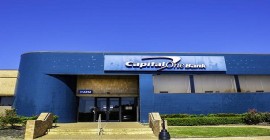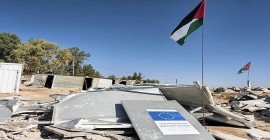“ORIO” Project for the Development of the Transportation Sector
In three years’ time, the transportation sector in Palestine will become developed, slightly resembling the one in Europe. The ticket system will be implemented, and arrival and departure times will be set for buses through the Dutch “ORIO” project that aims to develop the transportation sector, and that has a budget of 32.5 million euros.
Palestine Economy Portal
Translated by: Tamara Barakat
The coordinator of the Dutch “ORIO” project at the Ministry of Transportation, Yousef Darawbsheh, said that the Ministry aims through this project to restore the trust of the citizens in the transportation sector.
The fund for the project amounts to 32.5 million euros, without having a specified ceiling. The Netherlands contributed with 80% of the fund, while 20% will be covered by the Palestinian Government.
Darawbsheh explained that the project aims to change the methodology currently employed in the transportation sector, through a series of steps including scheduling bus arrival and departure times, an increase in security, and implementing the ticket system. This system will categorize the people in the society in groups, such as students, the elderly, the retired, and people with special needs, which will decrease the cost of transportation on some of the categories.
He also emphasized that the Ministry of Transportation does not strive to compete with the 86 public transportation companies in the West Bank through the “ORIO” program. The Ministry will be provided with 120 new buses that will work together with the existing bus companies to develop the local transportation sector and restore the people’s trust in it.
The project’s economic significance lies in the fact that it will participate in the development by helping people reach all places, including industrial and agricultural areas. It will also decrease the operation costs of buses in Palestine, since many of them have been in use for more than 12 years and will incur high maintenance costs, which in itself will increase the transportation costs paid by the citizens.
The new buses, on the other hand, will require less maintenance and will have their own maintenance facilities, which will reduce the shipping prices of spare parts from abroad, and thus, the transportation costs paid by the citizens will decrease.
When will the project come to light?
According to Darawbsheh, the project consists of three phases that are going to be implemented over the period of three years. The first phase is the development phase and will last for a year. It will involve the preparation of studies by consultancy companies, directly funded by the Netherlands, that include reviewing the legislations and the construction and development of institutions, studying the environment and the social effect of the project on the marginalized areas, and determining the types of needed buses. The Ministry of Transportation announced on December, 08 2015, the commencement of the first phase.
The second phase involves international tenders for the buses specified in the first phase. It also includes the preparation of the infrastructure, such as maintenance centers and stops for the buses. The final phase involves the implementation of the project.
The Story Behind the Project
The idea behind the project started in 2008 after a surprising report was issued by the World Bank. The least to be said about this report is that it was very “dark.” It revealed that the transportation sector in Palestine was heading toward bankruptcy. Darawbsheh said that the report warned that the large companies would be the first to be harmed because their operation costs are greater than those of the small companies.
Indeed, the forecasts of the World Bank started to come true. Darawbsheh said, “Two companies have begun to suffer from a difficult economic situation, very close to bankruptcy, because of their low financial returns caused by the closures placed on cities in the West Bank and Jerusalem by the Occupation, and the high operation costs and maintenance requirements of the buses.”
Consequently, the Ministry of Transportation started to seek support in order to develop and advance the transportation sector.






